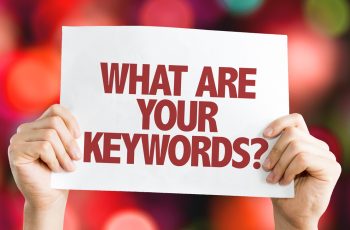Should You Use Native Web Site Pages as PPC Landing Pages?
One of the great things about collaborating with fellow digital marketers is the variety of perspectives you encounter. When competing opinions arise in the process of creating successful programs for a client it forces you to really think about why you are making a recommendation and to defend your position with facts and reason.
This very thing happened recently regarding a client that hired us to create and manage their paid search marketing campaign, while a second company was hired to build a new web site and handle the search engine optimization efforts.
The discussion boiled down to the following case for using native web site product pages as paid search landing pages.
- We believe that building quality pages is the key to a proper web site.
- We will optimize the site to rank for relevant keywords and optimize the product pages to be the best they can be.
- We believe that paid search marketing is a temporary strategy and that landing pages are not necessary as our product pages will be awesome.
- A couple of the paid search landing pages have 85% duplicate content and we believe that will hurt our SEO efforts.
- We should instead take the time and effort to improve quality score using the native product pages instead of using landing pages.
Are They Wrong?
No, and yes. Certainly we agree that the sites product pages should be optimized for keywords the client wants to rank for organically. And of course they should be the most usable, awesome pages anyone has ever seen (defined by their success in converting visitors of course). And yes too much duplicate content can get you penalized by the search engines. The problem is the web company, being specialists in SEO, were looking at paid search marketing through SEO colored lenses.
Paid Search Marketing is a Temporary Strategy, You Say?
Let’s start with the premise that paid search marketing is a temporary marketing strategy, presumably because your goal is to get ranked organically for your keywords in the search engines.
The short response to this is that if your paid search marketing program is profitable, why would you ever turn it off? With such a tractable, repeatable marketing channel you can plan for and rely on every year, why on earth would you every abandon it? I suspect some believe that if you can get ranked for your keywords organically, you shouldn’t need to run redundant paid search marketing campaigns. Here is why I believe this is wrong.
- Organic rankings take time to achieve. A lot of time. And they can be wiped out in a second during a search engine algorithm update.
- It’s hard to rank organically for hundreds, or even thousands of keywords depending on your goals. It’s also very time consuming to generate the content needed to achieve top rank for high volumes of keywords.
- Even if you were to rank organically for all your desired keywords, with paid search ads you can double or triple the amount of search engine results page real estate you ‘own’, making it more likely you will win the click.
- With paid ads you can control your messaging, even testing variations of your ads in real time. Organic results might draw from your meta tags or match up on-page content with a prospects search phrase. And by the way, consumers will search in many different ways that rarely match your targeted keywords exactly.
- Paid search is tractable and linear. We can draw a line from cost to results in a way you cannot with SEO.
In addition to these important points, Wordstream reports that “Sponsored results earn about twice as many clicks as the organic results” and “Searchers looking to buy a specific product are much more likely to click the sponsored ads.” The notion that searchers click on organic listings in higher volumes, or don’t trust paid ads is simply not true. (Source: Wordstream’sCompete in Adwords eBook)
SEO Versus PPC. Two Different Animals.
Let’s take a step back for some perspective about optimization in regards to organic rankings versus paid search marketing. On one hand, with SEO, you are working to get your keywords ranked in the search engines. On the other hand, with paid search marketing, you are optimizing to improve keyword quality score. If you aren’t familiar, keyword quality score is used by the search engines to determine how much you will pay, and for what position, in each online ‘auction’ (i.e. search).
These are two very different, and in some ways competing goals. And here is the major rub, you simply cannot optimize one product page to rank all the variations of keywords you will want to rank for organically and all the keyword variations you are targeting in paid search.
Let me give you an example. If I have am a company that only sells a handful of products I may have 5 product pages at our online store. Realistically I can target 25 or so keywords to rank for organically for each page and will optimize the page for that goal. But what if searchers use a variety of variations and slang to search for my product? What if I also want to target groups of keywords in various stages of the buyer’s journey? I’m looking at a few hundred or more keywords we want to target, and there is no way we will get one page optimized for them all.
In this particular example the product is used to maintain a snow mobile. Also known as a sled, or a snow machine. And the part the product works on? It’s known as a runner, or carbide runner, or ski, or skeg. And for those that aren’t looking for this specific product but want to improve their snow mobile’s handling or traction or are looking for a new part, but we want them to know they can repair the part they have with our product instead? Now we can add traction and handling plus snowmobile, snow machine and sled plus runner and ski etc. Plus every brand of manufacturer of the part they are looking to replace. I suppose we could replicate the product page, but then we’d have multiple product pages for the same product in our online store. Doesn’t sound like a solid usability strategy to me.
But What About the Duplicate Content Penalties?
First let’s talk about the concept of a winning ‘pitch’. Once you’ve found a page content formula that converts like a champion why would you abandon that just to be sure you don’t have duplicate content? In fact, landing pages tend to have duplicate content by design. Keeping the main formula in place, but micro optimizing for the subtle variations in the keywords you are targeting. Think snow mobile versus snow machine. Or equipment financing versus equipment loan versus equipment lease. Or retirement home versus retirement community. The message will stay the same, but the variations of the keywords you are optimizing for will change.
Yes, the search engines are on the lookout for sites using duplicate content to rank for keywords organically. But does this mean they don’t believe there is ever a use for duplicate content? Of course not. In fact, Google addresses this in their support documentation. While you can instruct the search engines not to index your landing pages if there is duplicate content, Google provides the following preferred solution.
“Google does not recommend blocking crawler access to duplicate content on your website, whether with a robots.txt file or other methods. If search engines can’t crawl pages with duplicate content, they can’t automatically detect that these URLs point to the same content and will therefore effectively have to treat them as separate, unique pages. A better solution is to allow search engines to crawl these URLs, but mark them as duplicates by using the rel=”canonical” link element, the URL parameter handling tool, or 301 redirects. In cases where duplicate content leads to us crawling too much of your website, you can also adjust the crawl rate setting in Search Console.” (Get the full details at https://support.google.com/webmasters/answer/66359?hl=en)
If duplicate content penalties are holding you back from creating highly optimized landing pages for your paid search marketing campaigns you can now put that aside and create the pages you need to optimize for keyword quality scores.
Paid Search is Also More Fluid
Another reason that landing pages provide us with the tools we need for success in paid search is due to higher frequency in optimization. What does this mean? Quite simply, a search engine optimized landing page is generally edited very little once the main keywords are selected and the initial optimization is complete. Perhaps a small tweak here and there is necessary based on ranking results.
With paid search landing pages, we might have a group of keywords we are optimizing for and once data starts coming in we realize we need to break some of the keywords out into their own campaign. We’ll start that new campaign with a new landing page and re-optimize both for the narrower set of keywords.
There are many instances where the campaign structure or keyword grouping in paid search will change and we need to be diligent in creating or adjusting the assets we need to optimize for keyword quality scores. If we were to edit the main site product page every time we needed to optimize for keyword quality scores we would end up affecting the SEO efforts in unintended, and often destructive ways. Since we don’t care if our PPC landing pages are organically ranked, we are freed from that constraint and can optimize for quality score to our heart’s delight.
But What if the Native Web Site Product Page Performs Better?
Great question. I believe in letting the data drive your decisions and highly recommend split testing your landing page format against the native product page format. However, even if the native landing page wins the day I still recommend duplicating the format using an individual landing page for your paid search campaigns for all the reasons we’ve reviewed in this article.
In closing let me be clear on one thing. Both agencies are talented and looking to create success for our client. So I view these conversations as positive and constructive so long as we can reach a mutually beneficial resolution. And that is what happened here.
So what do you think of this discussion between SEO and PPC agencies? Have you had experience in the debate between SEO and paid search landing pages? How did you solve the challenge? We want to know, so feel free to share in the comments below!





